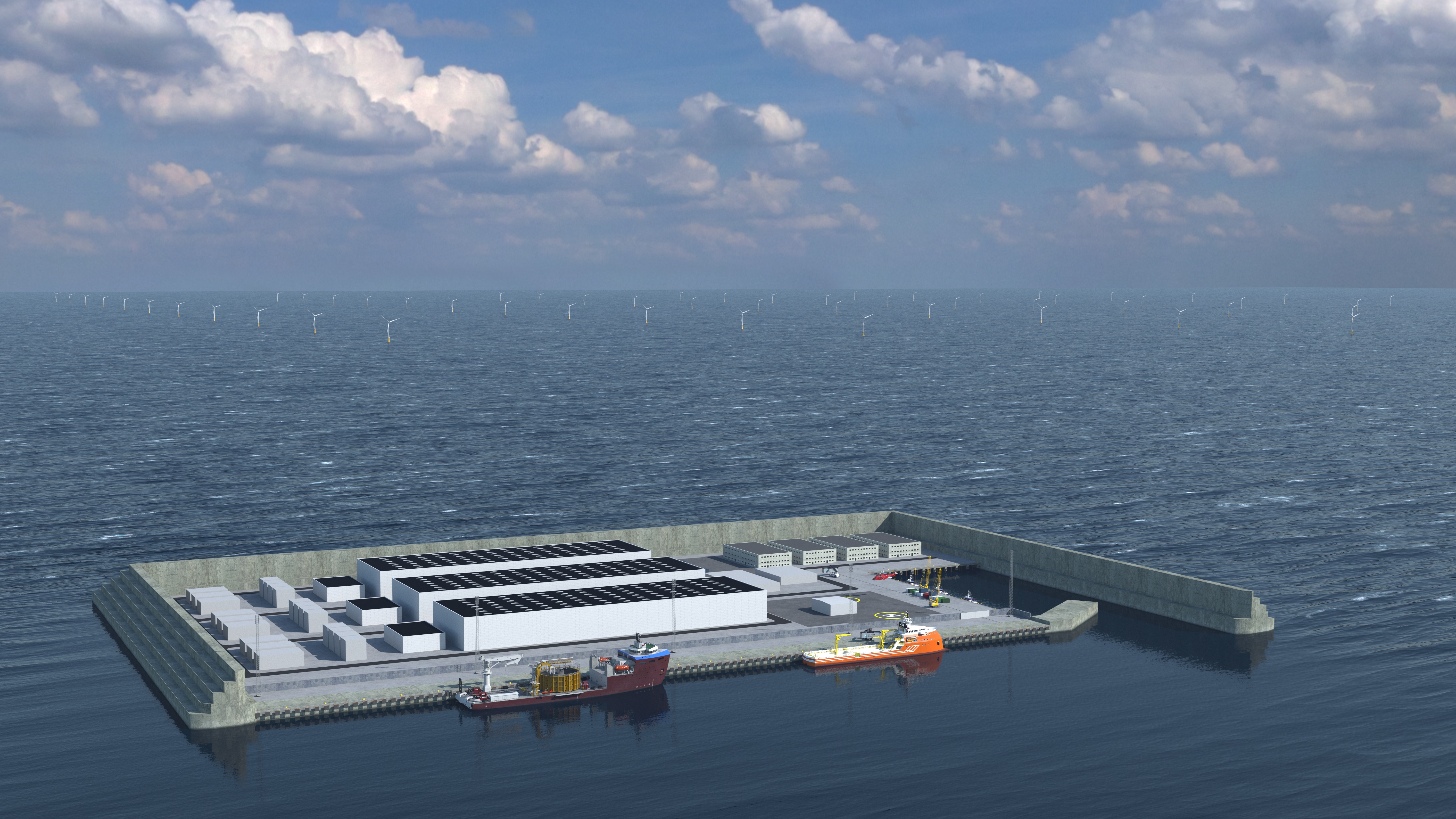Denmark has to make sure it has the right solution for the energy island in the North Sea. The solution must ensure that Denmark can harvest its unique offshore wind resources in the best possible way, and establish a role model for the green transition globally.
Clever initial concepts
The Danish Energy Agency has listened to useful and constructive advice from private market actors via the two market dialogues held in 2021. Based on this, there is a need for further tender preparation work in order to harvest Denmark's offshore wind resources in an appropriate manner thereby maintaining its role as a green global pioneer. As a result, the tendering procedure for the Danish energy island in the North Sea is postponed to mid-2023.
"After consulting the market, weare convinced that we are investing wisely spending up to 12 more months on establishing a solid foundation to ensure that the energy island in the North Sea will be launched as a green flagship for future deployment of Danish offshore wind energy contributing to the green transition in Europe and globally. Developing clever concepts takes time, but there’ll be rewards in the long run," said Mogens Hagelskær, deputy director general responsible for the energy islands in Denmark.
Good suggestions for the energy island concept
More than 20 private market actors and consortia have suggested innovative solutions in the market dialogues for how to best design the energy island in the North Sea and the business model to prepare the concept for the future. The Danish Energy Agency and government advisors have therefore assessed that there is a need for more time for further analysis of the market input.
Based on professional recommendations from the market and the government advisors, and within the framework of the political agreements, further work on the business model and technical concept of the energy island will now focus on a flexible island concept that gives the possibility to combine the advantages of a reclaimed island and platforms but without limiting the possibilities for innovative activities (e.g. PtX) and room for manoeuvre on the island within the limits set by regulation and safety requirements in force at any time.
"With a flexible reclaimed island, we’ll secure a technical island design that will be built using both known technology, which means that it can be realised faster, and innovative and flexible solutions that can inspire globally,” says Mogens Hagelskær.
The energy island will be tendered using functional requirements, which i.a. sets requirements for the technical functionality of the energy island as a transmission hub, so that the island fulfills the purpose of being able to facilitate the use and transmission targeting 10 GW offshore wind by 2040.
The business model for the public-private partnership will focus on renting out areas to the activities of the Danish transmission system operator, Energinet. The model secures a transparent, efficient and open competitive environment for the development of innovation and offshore wind power.
Optimised timetables
The tendering procedure is a sub-element in the overall timetable.Through close dialogue with private market players, the government's advisors and Energinet, the Danish Energy Agency has asked for and collected several proposals for how we can optimise the later process to maintain the overall timetable.
"We expect that the time we spend on finding good solutions now at the start of the project will enable more intelligent and faster solutions in the long term. We’re still aiming to supply green energy from the energy island in 2033; realising this however still depends on many factors; not least the contracts with the contractors who will be building the island,” said Mogens Hagelskær.
The Danish Energy Agency is also continuously exploring possibilities to optimise the overall timetable in accordance with the political agreements.
Increased competition on price and quality
The Danish Energy Agency will continue to take part in open dialogue with the market while preparing the tendering procedure. For example, more market dialogues have been planned with Danish and international market players for both this year and 2023. The ongoing dialogue with the market will also help strengthen competition for the North Sea Energy Island.
“We’re working for other people's money. And not least for the climate. Therefore, we have to ensure a strong competitive field of bidders so that we can identify the best solutions of the right quality at the lowest cost," concludes Mogens Hagelskær.
Facts:
- The energy island in the North Sea, including the electricity infrastructure and associated offshore wind farms together comprise the largest infrastructure project in the history of Denmark. Read more about the project on the Danish Energy Agency's website.
- The Danish Energy Agency is tendering the joint ownership and the construction project to build Energiø Nordsø in one major, consolidated international tendering procedure. The political decision is described in “Udbudsforberedende delaftale om langsigtede rammer for udbud og ejerskab af energiøen i Nordsøen”.
- The tender is planned to be announced in September 2023. Prior to the tender announcement, further market dialogues will be held, and these will be announced separately.
- The Danish state will own 50.1% and the private owner 49.9% of the energy island. This is described in ”Tillæg til klimaaftale om energi og industri af 22. juni 2020 vedr. Ejerskab og konstruktion af energiøer mv.”
- The TSO Energinet is to build, develop and operate the electricity infrastructure on the energy island. Read more about Energinet's work on the energy island.
